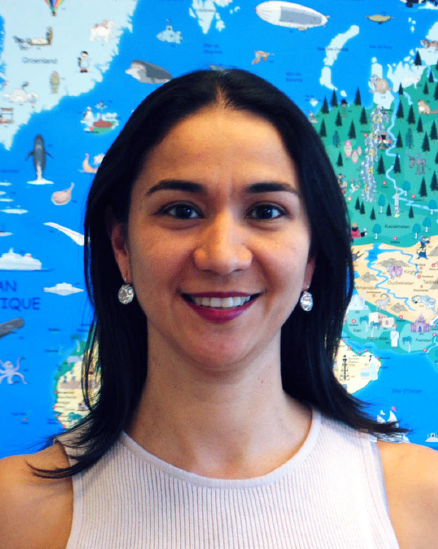The world today is at the crossroads of technological progress and social, economic and political instability. On one side, we have more access to information and tools that allow us to communicate across borders; on the other, inequities, extreme ideologies, exclusion and discrimination are running rampant around the world.
When thousands of children and young people are skipping school to take to the streets, claim a better future, and demand better care for the global environment, we know that we are failing them as adults. When thousands of youth have to demonstrate to demand policies that provide them with decent opportunities, we know that our systems are failing them. When thousands of children take a stand on Universal Children’s Day to say “NO!” to violence against children, to say “STOP!” to corporal punishment, gender-based violence, discrimination, and all forms of violence, and to say “LISTEN to us!” — we know that we are not doing enough to protect and work with children. Today, children and young people from all corners of the world are calling on adults to take care of our planet, our peoples and our future… their future. Children and young people are telling us that it does not matter what they are taught in school if we fail as human beings to care for one another, if they are not and do not feel protected and empowered, and if they are not provided with opportunities to make a difference in their communities.
It has become clear that we have privileged the education of the mind at the expense of the education of the heart.
The 2030 Agenda for Sustainable Development, in Goal 4.7, declares that education should promote “sustainable development, including, among others, through education for sustainable development and sustainable lifestyles, human rights, gender equality, promotion of a culture of peace and non-violence, global citizenship and appreciation of cultural diversity.”
Ethics Education for Children is critical to achieving the 2030 Agenda. The cornerstone of sustainable development is education that helps children and youth to develop critical thinking skills and fosters collaboration and collective action, that nurtures empathy, respect for differences, and a sense of individual and collective responsibilities, and that helps develop the capacity to reconcile differences and create bridges of trust.
Our Ethics Education approach provides a conceptual framework, a pedagogical method and a set of creative tools that help children connect and learn from one another across religious, ethnic, gender and socio-economic divides. It equips them with the skills to enter into dialogue with one another, to become critically conscious about the world around them, and think about what they can do, individually and collectively, to transform their communities. Perhaps even more urgently today, Ethics Education nurtures children’s spirituality — their innate capacity to connect with their inner selves, with others, with nature and with that they consider Divine or Ultimate — a spirituality that embraces the other, that strengthens their identity and belonging and lifts them up to care for one another and to a greater purpose. Ethics Education for Children is transforming the way education prepares learners for the challenges our societies face and the ethical demands of our times. We are driven by the voices of children, by the many educators who want to challenge vertical structures of education, and by all who understand that education must be part of the solution. We are driven by the conviction that education must contribute to building peaceful and inclusive societies.
Ethics Education for Children is working throughout the life cycle of children, and side by side with educators, families, religious communities, governments, civil society organizations, multilateral agencies, and children and youth. We are co-creating change with many partners around the world. I invite you to join hands in action with us to transform the state of education and learning today, to work together with children and youth around the world who are demanding change, and to contribute to a better today and a better tomorrow for each and every child and for all.
Thank you for your interest in our work and for keeping the promise of building a world that cares for children — a world that includes and respects them, a world they are helping to shape.
By: Mrs. Maria Lucia Uribe, Director Arigatou International Geneva
